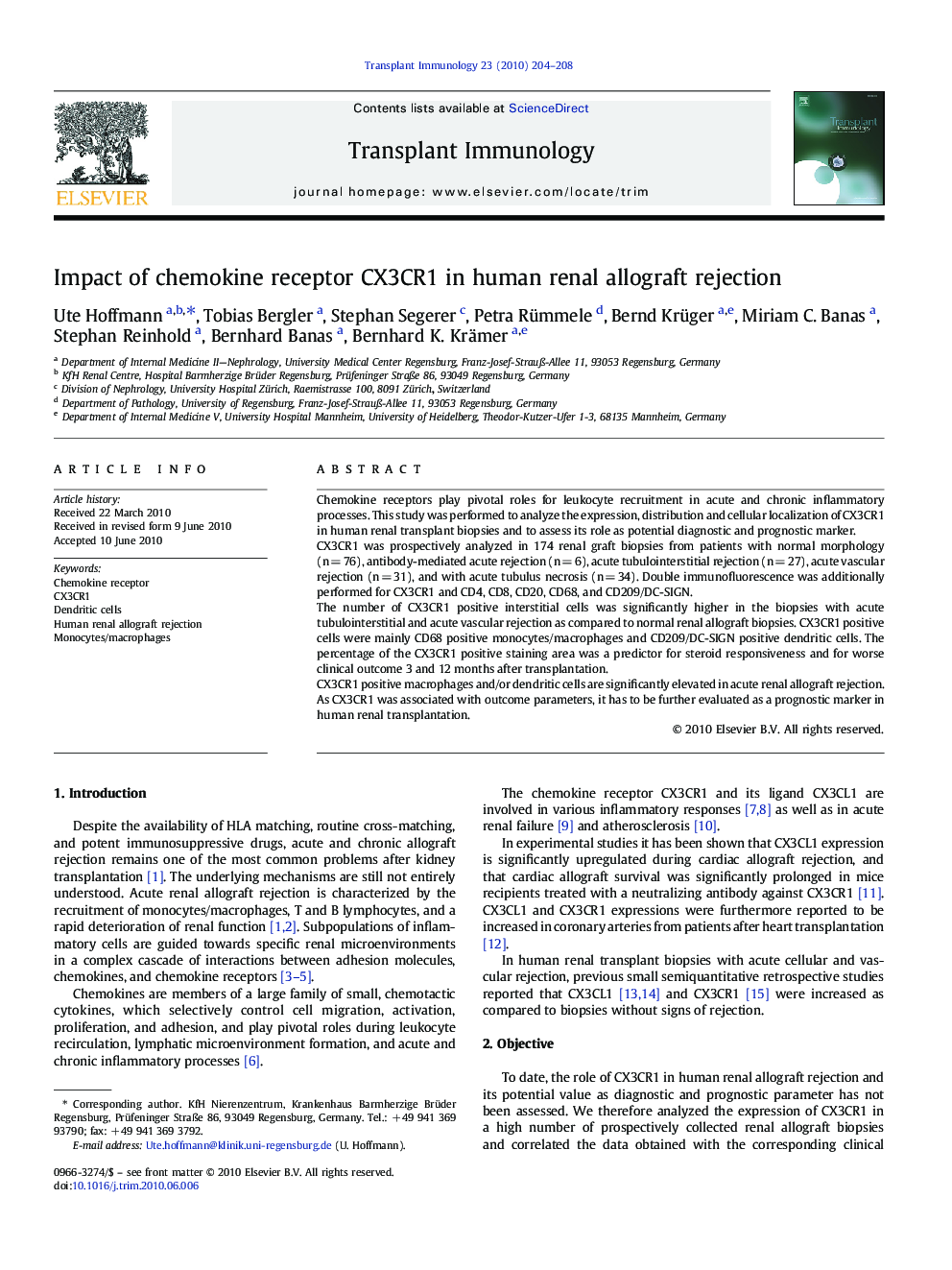| Article ID | Journal | Published Year | Pages | File Type |
|---|---|---|---|---|
| 3392347 | Transplant Immunology | 2010 | 5 Pages |
Chemokine receptors play pivotal roles for leukocyte recruitment in acute and chronic inflammatory processes. This study was performed to analyze the expression, distribution and cellular localization of CX3CR1 in human renal transplant biopsies and to assess its role as potential diagnostic and prognostic marker.CX3CR1 was prospectively analyzed in 174 renal graft biopsies from patients with normal morphology (n = 76), antibody-mediated acute rejection (n = 6), acute tubulointerstitial rejection (n = 27), acute vascular rejection (n = 31), and with acute tubulus necrosis (n = 34). Double immunofluorescence was additionally performed for CX3CR1 and CD4, CD8, CD20, CD68, and CD209/DC-SIGN.The number of CX3CR1 positive interstitial cells was significantly higher in the biopsies with acute tubulointerstitial and acute vascular rejection as compared to normal renal allograft biopsies. CX3CR1 positive cells were mainly CD68 positive monocytes/macrophages and CD209/DC-SIGN positive dendritic cells. The percentage of the CX3CR1 positive staining area was a predictor for steroid responsiveness and for worse clinical outcome 3 and 12 months after transplantation.CX3CR1 positive macrophages and/or dendritic cells are significantly elevated in acute renal allograft rejection. As CX3CR1 was associated with outcome parameters, it has to be further evaluated as a prognostic marker in human renal transplantation.
